It was April 2007 and I was in my command post in Al Anbar Province, the most violent region in Iraq during the most violent year in the war. In a phone call from the U.S., I had just been assured that my daughter at Virginia Tech was alive and unharmed, but that one of her close friends was killed and several of her friends were fighting for their lives in emergency surgery. That day 32 people were murdered on a college campus, vastly outnumbering our combined casualties in Iraq and Afghanistan on the very same day.
Gun violence in America has become a national security emergency. In just the past week, at least 36 people lost their lives and 50 more were wounded across four separate mass shooting incidents. Over the past two decades hundreds of thousands of Americans have been killed by guns—and though the statistics vary across sources, many estimates put the number of deaths on par with the combined total of U.S. military deaths since the start of World War I.
As a veteran of the wars in Iraq and Afghanistan—and having commanded all U.S. and NATO forces in the case of the latter—I am all too familiar with the threat of unmitigated gun violence and the proliferation of deadly weaponry. With that experience in mind, it’s all the more gut-wrenching to me that Americans today are more likely to experience gun violence than they might in many of the places to which I deployed in the name of defending our nation.
No other country has even half the number of gun deaths as the United States and to a nearly insurmountable degree, none come close to the number of firearms circulating and flowing within our borders. The United States is a significant outlier amidst the community of nations on this issue, and regardless of one’s views on the Second Amendment, that alone should give every American pause.
What’s more, radicalization and white nationalism and supremacy are on the rise in the United States—and many of the most recent mass shootings have been fueled by violent, racist rhetoric. The shooting in El Paso was preceded by the posting of a manifesto which articulated a “Hispanic invasion of Texas” and details to divide America into territories defined by race. These despicable and utterly condemnable ideas are rearing their ugly heads in more and more places, with many experts predicting that this trend will only continue. And indeed, the president’s own racist rhetoric exacerbates this dynamic, immobilizes responsible action by our elected representatives, and reinforces the divides in our society.
I saw firsthand in the fight against the Islamic State how radicalization—especially through the internet—can be a major factor in terrorist recruitment. We need to be honest about the fact that Americans are being radicalized at this very moment on Internet platforms like 4chan, or until recently, 8chan. We need to wake up to the reality that our national tolerance for violence and the online radicalization of Americans—and in particular, disaffected white men—is an immediate and growing national security threat. The Constitution that I and many, many others swore to defend protects Americans’ rights to own and operate firearms. That is beyond question. But we cannot allow that freedom to prevent us from saving lives and protecting our nation.
If 36 people were killed in a single week by al Qaeda, ISIS, Boko Haram, or any of the other terrorist groups I have fought against in my career, any president—to include the present one—would be ordering U.S. troops onto foreign soil to root out the threat. These jihadist groups radicalize their followers to hate, and to act on their hate by destroying entire communities and peoples. Yet somehow when this same kind of threat comes from within, we are unable to mobilize our considerable resources and potential to address it meaningfully. The awful truth is that since 9/11, far more Americans have been killed by domestic terrorists and white supremacists in their many grotesque forms, as have been killed by foreign terrorists. As a result, all around the United States, public spaces, to include places of worship, are having to develop security plans akin to those of our military bases.
If that doesn’t represent a threat to our way of life, and thus to our national security, I don’t know what does.
Our response as a nation must embrace both protective and preventive measures if our schools and communities are to be safe. Our national security and law enforcement communities have very clear guidelines and even clearer responses to these types of threats, and enormous amounts of work on protection is already underway. The domestic civil sector—those who produce, purchase or sell guns—have a moral obligation to be a part of the solution, as well. But we are not yet efficiently organized at the federal, state, and local levels for this huge undertaking—to protect the near endless list of potential targets throughout our open society.
Preventative measures must be put into place immediately to deny malefactors from obtaining high-power assault weapons. No civilian needs to own an assault weapon that’s nearly identical to the weapon I carried in Iraq. So too, no American needs to own a version of the rifle our enemies carried in Iraq and Afghanistan. That you and I can find these and other similarly dangerous weapons routinely available for purchase across the U.S. is insanity.
When SWAT units rush to our defense and they encounter shooters in body armor with nearly the same firepower as they’re carrying, we should all be furious. But instead, we have become numb. We’ve become conditioned and inured to this reality and are now accustomed to the endless, well-rehearsed arguments that play out online and in the halls of Congress. The concerned and aggrieved rhetoric of politicians is meaningless when they fail to pass the laws and take the actions necessary to protect Americans. We cannot afford for this cycle to continue, and if we’re not prepared to do everything within our power to end this cycle, then shame on us as a people.
Gun violence is a national security emergency, and the future peace and prosperity of Americans depends upon finding meaningful solutions.
The Brookings Institution is committed to quality, independence, and impact.
We are supported by a diverse array of funders. In line with our values and policies, each Brookings publication represents the sole views of its author(s).

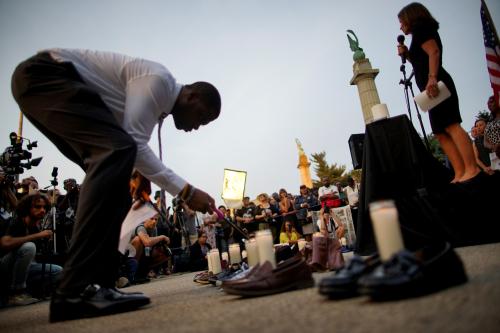
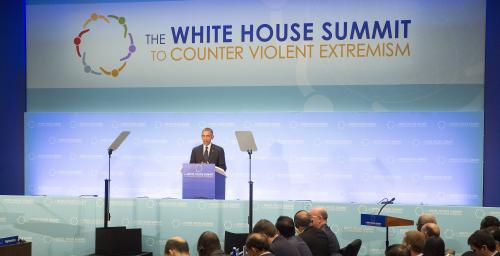
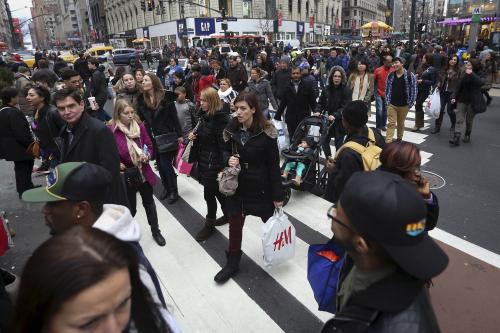
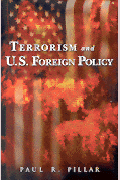
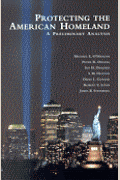
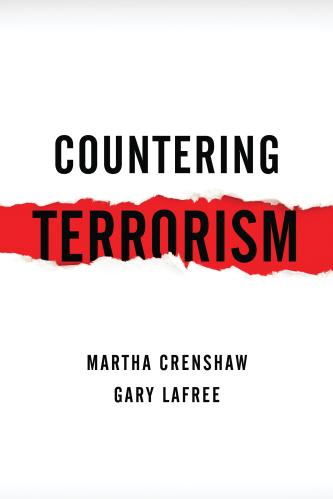




Commentary
Gun violence in America: A true national security threat
August 5, 2019